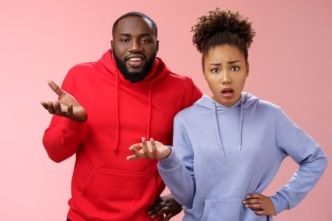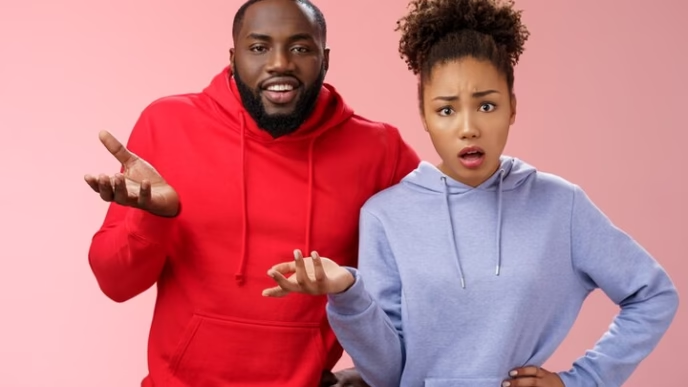Key Highlights
- Toxic friendships that consistently drain your energy and joy are not friendships worth keeping.
- You deserve relationships that celebrate your growth, not suffocate it.
- Sometimes the most loving thing you can do is let someone go.
Emma used to believe that good friends were supposed to hurt you sometimes. Not physically, of course, but emotionally. She thought that if someone could wound you deeply, it meant they mattered. If they could make you cry, it meant they had access to your heart. If they could disappoint you repeatedly, it meant you loved them enough to keep hoping they’d change.
The realization that she was wrong hit her like a slap during what should have been one of the happiest moments of her life. She had just landed her dream job—the kind of opportunity she’d been working toward for years. And with shaking hands, she called the person she thought would be most excited for her.
“Guess what?” Emma sang into the phone. “I got the job!”
The silence stretched so long she thought the call had dropped.
“Oh,” came the flat response from Jessica. “That’s… nice, I guess.”
Nice. I guess? Three years of friendship. Countless hours of Emma celebrating Jessica’s victories, comforting her defeats, and cheering her on through every life change. And when it was finally Emma’s turn to shine, all she got was “nice, I guess.”
But the lukewarm response wasn’t what broke something inside Emma. It was the conversation that followed: thirty minutes of Jessica explaining why this job wasn’t really that great, why Emma shouldn’t get too excited, and why she needed to be realistic about what it would actually be like.
By the time Emma hung up, she felt like a deflated balloon. The joy she’d felt just minutes before had been shattered by someone who was supposed to be her safe space.
That night, Emma lay in bed staring at the ceiling while pondering on the question she’d been avoiding for months: When did her best friend become her biggest critic?
When Your Best Friend Becomes Your Biggest Critic
Emma and Jessica had been inseparable since high school. They were the kind of friends who finished each other’s sentences, who could communicate with just a look, who promised they’d be each other’s maid of honor someday.

But somewhere in their twenties, things started to change. Or maybe it had always been there, and Emma had just been too naive to see it.
Jessica had this way of making Emma feel small while convincing her she was helping. When Emma got excited about anything—a new relationship, a creative project, a personal breakthrough—Jessica would find a way to puncture her enthusiasm with “reality checks” that felt more like personal attacks.
“Are you sure he’s really interested in you?” Jessica would ask when Emma would gush about someone she was dating. “I mean, he hasn’t made it official yet…”
“Don’t you think you’re being a little too optimistic about this business idea?” Jessica would say when Emma would share her entrepreneurial dreams. “Most startups fail, you know.”
“You’ve been so different lately,” Jessica would comment whenever Emma tried to set boundaries or prioritize her own needs. “I miss the old you.”
Emma told herself Jessica was just being protective. That she was trying to save her from disappointment. That real friends tell you the hard truths even when they hurt.
But the truth was that Emma was shrinking. Every conversation with Jessica left her questioning herself, doubting her instincts, and second-guessing her choices. She started filtering her good news, sharing only the victories she thought Jessica could handle. She began downplaying her achievements to make Jessica more comfortable.
How to Recognize Emotional Manipulation in Friendships
Emma’s breakthrough came during a girls’ trip they’d planned for months. They were sitting by the pool, and she was telling Jessica about a promotion she’d just received. Instead of congratulating her, Jessica launched into a twenty-minute monologue about how promotions don’t really mean anything, how corporate success is hollow, and how Emma was “selling out.”
Emma sat there, her excitement curdling into shame, and suddenly she saw their entire friendship with crystal clarity.
They weren’t bonding over shared joy or mutual support. They were bonding over shared dysfunction. Jessica needed someone to feel superior to, and Emma needed someone to need her. Jessica got to be the wise one dispensing harsh truths, and Emma got to be the devoted friend who never left despite how badly she was treated.
What they had wasn’t love. It was trauma bonding disguised as loyalty.
Emma thought about all the times she’d defended Jessica to other friends who’d expressed concern. “She’s just honest,” Emma would say. “She keeps me grounded.”
She’d made excuses for Jessica’s behavior so many times that she’d started believing them herself. But sitting there, watching Jessica systematically destroy her moment of pride, Emma finally understood what everyone else had been seeing: this was emotional abuse with a best friend label slapped on it.
Red Flags of Toxic Friendships You Should Never Ignore
Looking back, the red flags had been there from the beginning. Emma had just been too invested in the fantasy of their friendship to see them clearly.

1. They Only Call When They Need Something
Every phone call was about Jessica’s crisis, her drama, her problems. When Emma tried to share her own struggles, Jessica would listen for exactly thirty seconds before redirecting the conversation back to herself.
2. Your Success Threatens Them
Good friends celebrate your wins as if they were their own. But Jessica couldn’t. Every achievement of Emma’s was met with criticism, skepticism, or outright hostility. Jessica needed Emma to stay small so she could feel big.
3. They Guilt-Trip You for Growing
Whenever Emma tried to improve herself—through therapy, new friendships, or personal development—Jessica would make her feel guilty for changing or abandoning her. Jessica wanted Emma to stay exactly as she was, forever.
4. You’re Always Walking on Eggshells
Emma found herself constantly managing Jessica’s emotions, choosing her words carefully to avoid setting Jessica off. Emma was responsible for Jessica’s happiness, but Jessica felt no responsibility for Emma’s.
5. They Punish Your Boundaries
Any attempt Emma made to set limits was met with sulking, guilt trips, or accusations that she was being selfish. Jessica trained Emma to believe that having needs was a character flaw.
6. You Feel Worse After Every Interaction
Healthy relationships should energize you, not drain you. After every conversation with Jessica, Emma felt depleted, confused, and somehow wrong about herself.
The hardest part wasn’t recognizing that the friendship was toxic. It was accepting that Emma had allowed it to become toxic.
Emma had taught Jessica how to treat her by accepting unacceptable behavior. She had enabled Jessica’s emotional manipulation by never calling it out. She had sacrificed her own well-being on the altar of Jessica’s comfort.
Emma wasn’t just a victim of Jessica’s toxicity. She was a participant in it. This realization was devastating and liberating at the same time. Devastating because it meant Emma had to take responsibility for her part in the dysfunction. Liberating because it meant she had the power to change it.
How to End a Toxic Friendship: The Conversation That Changed Everything
Emma decided to have one honest conversation with Jessica. Not to fix the friendship, because she knew by then it was unfixable, but to honor the years they’d shared by being truthful about why it was ending.
“I need to talk to you about something important,” Emma said over coffee one Tuesday morning. “I’ve been doing a lot of thinking about our friendship.”
Jessica immediately tensed. “What’s wrong now?”
“I don’t think this is working anymore,” Emma continued, her voice steadier than she felt. “I feel like I can’t share good news with you without it being torn apart. I feel like I’m constantly walking on eggshells, trying not to upset you.”
What followed, as usual, was a masterclass in manipulation. Jessica cycled through:
- Denial (“I’m just being honest”)
- Blame (“You’re too sensitive”)
- Guilt (“After everything I’ve done for you”)
- Victimhood (“I can’t believe you’d abandon me like this”)
But Emma didn’t engage with the drama. She didn’t defend herself or justify her decision. She simply repeated her decision to step back from the friendship.
The weeks that followed were emotionally complex for Emma. She grieved the friend she’d thought Jessica was. She felt guilty for giving up on someone who’d been such a big part of her life and questioned whether she was being too harsh, too unforgiving, or too selfish.
But amidst the emotional turbulence, Emma also felt something she hadn’t experienced in years: peace.
What Healthy Friendships Actually Look Like
Ending that toxic friendship taught Emma what real friendship actually looks like.

1. Real friends celebrate your wins
They’re genuinely happy when good things happen to you. They don’t need to diminish your joy to feel better about themselves.
2. Real friends support your growth
They encourage you to become the best version of yourself, even if it means you might outgrow them. They don’t punish you for evolving.
3. Real friends respect your boundaries
They don’t guilt trip you for having needs or make you feel selfish for prioritizing your well-being.
4. Real friends are emotionally regulated
They take responsibility for their own feelings instead of making you responsible for managing them.
5. Real friends give as much as they take
The emotional labor is balanced. You don’t feel like you’re constantly pouring into an empty vessel.
4 Different Ways to End a Toxic Friendship
Not every toxic friendship needs to end with a dramatic confrontation. Sometimes the situation calls for different approaches.
I. The gradual distance: This is when you slowly reduce contact until the friendship naturally fades. This works when the toxicity is mild and both parties seem to be growing apart.
II. The honest conversation: Having a direct discussion about why the friendship isn’t working. This is necessary when boundaries have been repeatedly violated.
III. The boundary reset: Sometimes you can save the friendship by radically changing its terms—limiting contact, avoiding certain topics, or only interacting in group settings.
IV. The clean break: Completely cutting contact. This is sometimes necessary when the person is manipulative, abusive, or refuses to respect your boundaries.
When to Let Go: 7 Clear Signs
If you recognize yourself in Emma’s story, here are the signs that it might be time to end a friendship:
- You dread their contact
- You feel worse after spending time with them
- They can’t celebrate your success
- You’re always managing their emotions
- They punish your growth
- You’re constantly walking on eggshells
- They violate your boundaries repeatedly

Conclusion: Choose Yourself
You don’t owe anyone your mental health. You don’t owe anyone your peace. You don’t owe anyone unlimited chances to hurt you.
The guilt you feel about ending a toxic friendship is not evidence that you’re making the wrong choice. It’s evidence that you’re a caring person who takes relationships seriously.
But caring about someone doesn’t mean accepting their mistreatment. Love doesn’t mean enabling dysfunction. Loyalty doesn’t mean sacrificing your well-being.
Some friendships are meant to last a lifetime, while others are meant to teach us lessons about what we will and won’t accept. Both have value, but only one deserves to continue.
Your life is too precious to spend it managing someone else’s emotions at the expense of your own well-being. Your joy is too valuable to dim for someone who can’t handle your light.
Sometimes the most loving thing you can do for yourself and for them is to let go.
Choose yourself! Choose your peace!
You’re not abandoning anyone by refusing to abandon yourself!
Frequently Asked Questions About Ending Friendships
Q: How do I know if a friendship is worth saving?
Ask yourself: Do they respect your boundaries? Can they celebrate your success? Do you feel better or worse after spending time with them? If the answers are consistently negative, it may be time to let go.
Q: What if I feel guilty about ending a friendship?
Guilt is normal when ending any relationship. However, guilt doesn’t mean you’re making the wrong choice. It often means you’re a caring person who values relationships, which is exactly why you deserve better treatment.
Q: Should I give them another chance?
Only if they’ve shown genuine accountability, made concrete changes, and respected your boundaries. Don’t fall for repeated promises without action; they are just manipulation tactics.
Q: How do I handle mutual friends after ending a toxic friendship?
Be honest but brief if asked. Focus on your own well-being rather than trying to convince or make them see reasons with you. True friends will respect your decision even if they don’t fully understand it.









